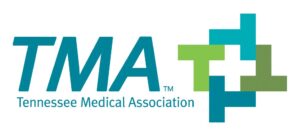2018 Legislative Recap
Tennessee’s largest advocacy organization for physicians had in 2018 one of its most active and successful legislative sessions in recent history. TMA lobbyists reviewed hundreds of bills and amended, supported or defeated more than 50 pieces of legislation impacting Tennessee physicians and/or patients.
- Opioids: While TMA did not proactively support any opioid-related bills, it was no surprise that the state’s number one public health crisis became the legislature’s number one debate. From the moment Governor Haslam announced his “TN Together” plan in January, TMA was actively involved in communicating doctors’ concerns to lawmakers to ensure that any related laws did not interfere with physicians’ appropriate medical discretion or obstruct patients in legitimate pain from getting the care they need. TMA was able to negotiate important amendments to improve the governor’s proposal but the new laws, effective July 1, 2018, represent the most comprehensive and restrictive opioid laws of any state. TMA has developed proprietary information to help educate members on the new prescribing restrictions, along with a number of other opioid-related resources, at tnmed.org/opioids.
- Maintenance of Certification: Thanks to TMA, Tennessee now has one of the most physician-friendly MOC laws in the U.S. In 2017, TMA responded to members’ requests to ease the burdensome and costly MOC requirements by passing a law prohibiting MOC as a condition of medical licensure in Tennessee. Laws passed in 2018 prohibit health insurance companies from requiring MOC as a condition for network participation and allows individual hospital medical staffs to determine whether MOC is a requirement for hospital privileges.
- Midlevel Scope of Practice: TMA in 2016 negotiated a three-year moratorium with the Tennessee Nurses Association on any scope of practice legislation, so there were no bills in 2018 related to APRN independent practice. There was a contentious debate in the legislature, however, surrounding a proposal for a new scope of licensure for physician assistants. Lincoln Memorial University sought legislation that would allow graduates of LMU’s Doctor of Medical Science degree program to practice in primary care as “doctors of medical science.” TMA was opposed to the bill in 2017 and 2018 and changed its position to neutral only after the proponents addressed all of physicians’ concerns, including changing the licensure name from “doctor of medical science” to “Essential Access Practitioner.” EAPs would have also been regulated by the Board of Medical Examiners in a physician-led, team-based care healthcare delivery model. The bill was withdrawn late in the session and LMU has said it does not intend to revisit. Read more about what happened with this bill in the Q2 issue of Tennessee Medicine magazine, or watch a brief video highlighting myths vs. facts about what the bill did and where TMA stood.
- Indoor Tanning Prohibition for Minors: TMA led a coalition of healthcare organizations that helped reduce the risk of children contracting melanoma and other forms of cancer by persuading lawmakers to prohibit anyone in Tennessee younger than 16 from using indoor tanning devices. The new law requires parental consent for 16 and 17-year-olds to use tanning beds.
- Balance Billing: Legislators continue to look for ways to address their constituents’ complaints about “surprise medical bills,” including considering proposals to ban the practice altogether or lift the ban on corporate practice of medicine. TMA defeated numerous proposals again in 2018 that would have eliminated hospital-based physicians’ ability to balance bill patients for services provided out of a health plan network. TMA continues advocating for a reasonable solution for all stakeholders, especially physicians and patients, and opposes any effort that gives health insurance companies even more undue leverage to force providers to accept unfair contractual terms.
- Episodes of Care: No bills were passed in 2018 related to TennCare’s episodes of care payment model but TMA continued its longstanding efforts to educate lawmakers on physicians’ concerns about fundamental flaws in the program design and implementation. Discussions are ongoing with key officials in the TennCare Bureau and legislative committees, and TMA has redoubled its advocacy efforts to ask the state to pause any new episodes so it can fix the issues.
- Tort Reform: TMA claimed an early legislative win in November 2017 when it announced that a Georgia-based group ended its three-year push to dismantle Tennessee’s medical malpractice system and replace it with a government-run administrative system. TMA constantly monitors threats to the malpractice climate and routinely fends off special interest groups that challenge caps on non-economic damages, which keeps premiums low and have reduced the overall number of malpractice cases by nearly 40% in the past several years. See at tnmed.org/tortreformROI.







